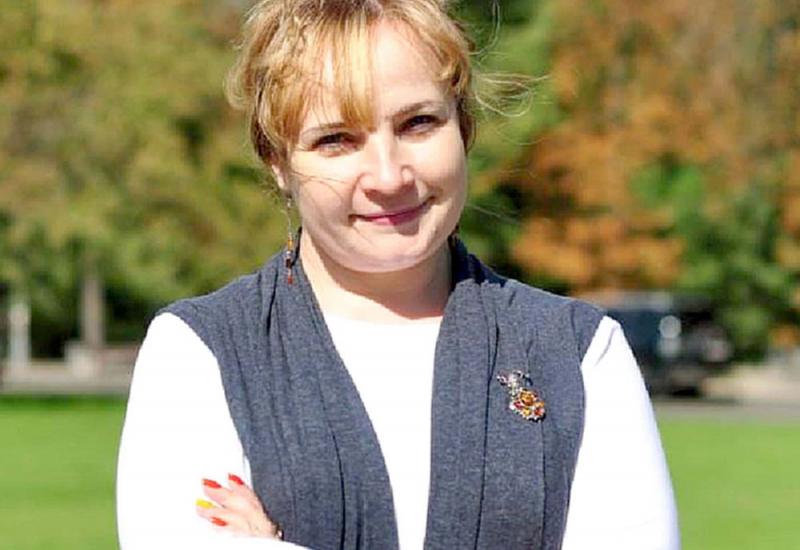Creating a high-quality and effective system of regulations is currently of great interest in the context of a new procedure for accreditation of study programs in higher education. The normative legal framework is the basis for regulating all aspects of a modern university. Such documents are no longer considered “bureaucratic pieces of paper” drawn up “to tick” but are a meaningful tool on which guarantors and groups providing study programs rely. The pandemic has become an extra challenge and caused significant changes in the organization of the educational process at Igor Sikorsky Kyiv Polytechnic Institute.
The Head of the Office for Student Affairs Tetiana Khyzhniak knows all the regulatory ins and outs perfectly. She is also a Lecturer, an Associate Professor of the Department of Radio Engineering Devices and Systems, the Candidate of Technical Sciences (Ph.D.) by vocation and by choice. Tetiana Khyzhniak is a member of the working group of like-minded colleagues, for instance, Olga Demydenko (Head of the Academic Mobility Office, Deputy Dean of the Faculty of Linguistics), Oleksandr Seminskyi (Associate Professor of the Faculty of Chemical Engineering), Tetiana Zheliaskova (Head of Educational and Methodical Department). Tetiana Khyzhniak personally drafted the most current regulations of Igor Sikorsky Kyiv Polytechnic Institute.
Tetiana Khyzhniak is ready to share her experience. She does not doubt that only a dialogue and close cooperation with all participants in the educational process i.e. students, teachers, graduates, representatives of employers, and academia generate the higher education quality. Such approach is consistent with modern trends because the main values of the European Higher Education Area is a student-centered approach, and also needs of all involved in the educational process.
These values are also part of the evaluation criteria performed by the National Agency for Higher Education Quality Assurance during the accreditation of study programs. 15 study programs of our University have been granted accreditation. Another 27 programs are being prepared for accreditation within the current academic year.
‘During the first accreditations under the new procedure,’ recalls Tetiana Khyzhniak, ‘we felt how important it was to have a well-prepared legal framework, and we also saw which gaps we needed to fill immediately.’
The well-coordinated Department for Student Affairs set to work. Creativity, teamwork, brainstorming, discussions, debates, coordination of opinions, and existing experience in various fields proved useful. As a result of many months of painstaking work, today we have a clear, structured, legally regulated (thanks to the cooperation with Head of the Legal Department Viacheslav Priamitsyn and his colleagues) normative foundation.
Tetiana Andriivna says, ‘The updated version of the Regulation on the organization of the educational process at Igor Sikorsky Kyiv Polytechnic Institute has become an effective respond to the new challenges. The Regulation’s structural components govern various specific aspects of education and the educational process as a whole in the form of separate rules.
The Regulation of prior learning at Igor Sikorsky Kyiv Polytechnic Institute is a document, which defines a legal and organizational procedure for academic degrees documents recognition and gives the steps for implementing recognition for all possible situations. Why is it relevant for students, departments, and the University as a whole? Because one of the requirements for successful accreditation is students' ability to form the Individual learning trajectory. Individual learning is secured by a clear algorithm for recognizing the results of previous training in other educational institutions, participating in academic mobility programs, and others.
Detailed procedures of students and University staff participating in academic mobility programs are available in the updated version of the Regulation on academic mobility and the new Regulation on double degree programs (which we plan to update taking into account the recommendations of the Center for International Education to attract more foreign students to participate in incoming mobility programs).
The Regulation on the organization of inclusive education has been drafted to meet current trends of wide involvement of people with special educational needs in the educational process.
The changes of the country’s legislation are reflected in the updated version of the Regulation on expulsion, interruption, transfer, and reinstate of higher education. These regulations also help form the Individual educational trajectory, consider special situations of students' lives, and understand the consequences of insufficient attention to learning, and many other issues.
Yet given that the University is a whole world, where there are many different participants with their thoughts, emotions, and characters, of course, there may be situations that lead to more or less global conflicts. Thus, it was logical to develop the Regulation on conflict resolution, the Regulation on the commission for conflict resolution. All these rules intend to explain to students and staff which situations can be considered a conflict, where to go, and whom to turn to in a given situation.
Our team also promoted the Regulation on the current, calendar, and semester assessment of learning outcomes, which discloses the procedure of students’ self-assessment, teachers' assessment, all the details and features of specific types of assessment at the University.
On behalf of the Guarantors of the University's study programs, I express my sincere gratitude to Tetiana Andriivna Khyzhniak and her colleagues. I do realize how much tireless work they have done and how significant it is for the proper organization of the educational process. I wish you notable achievements in professional and personal growth in the future!

